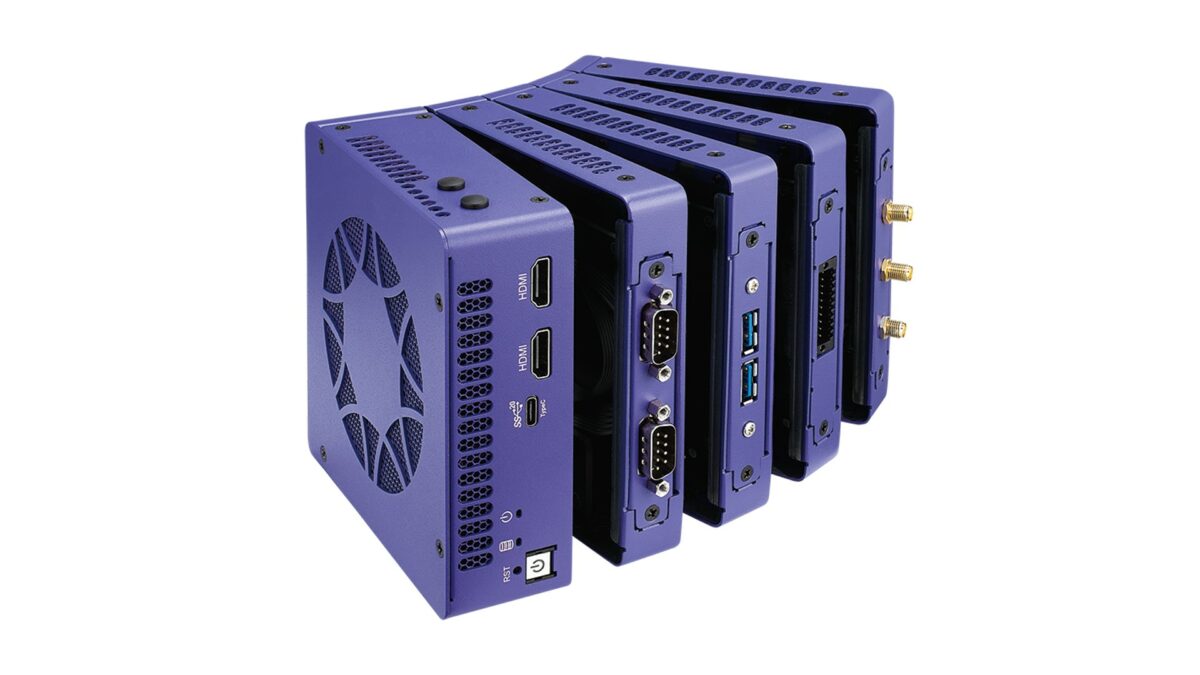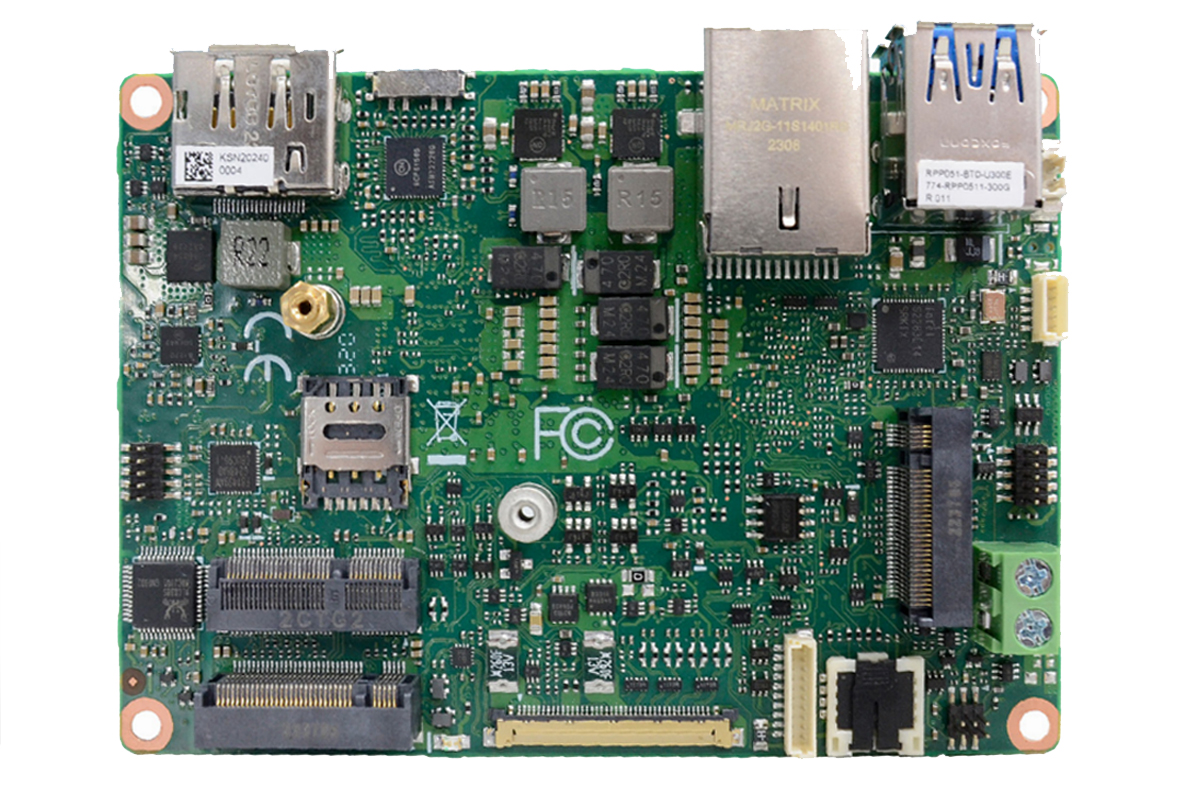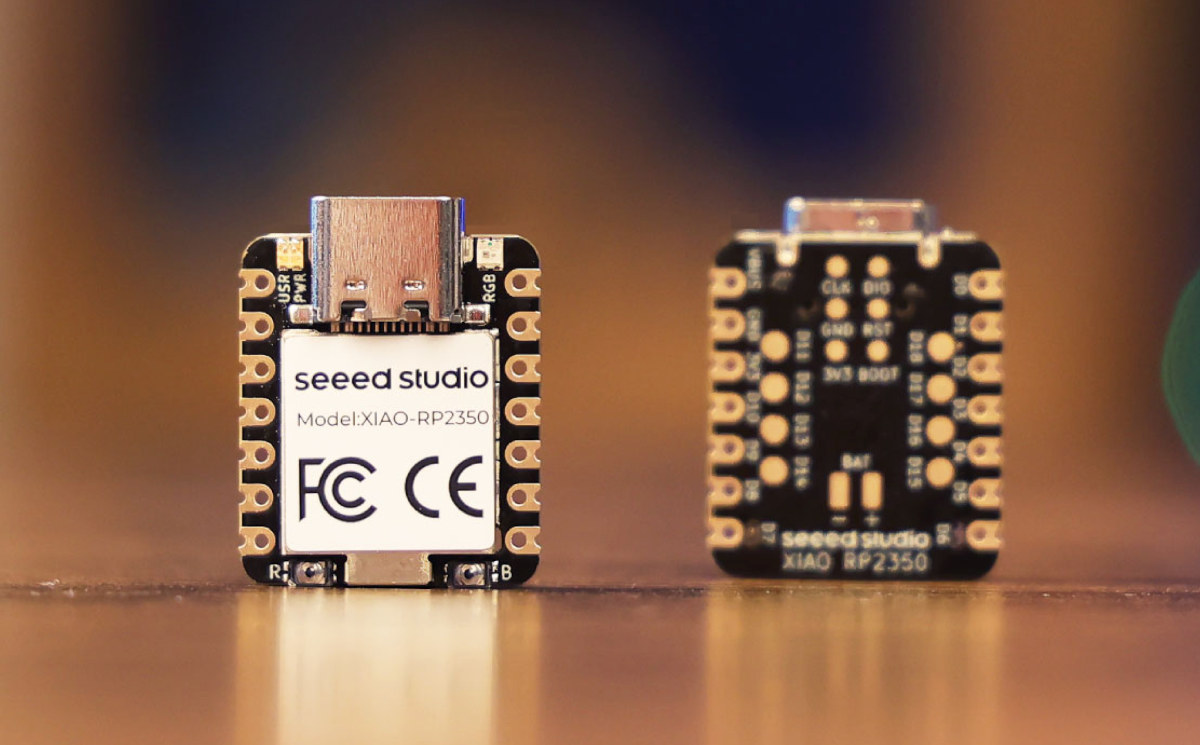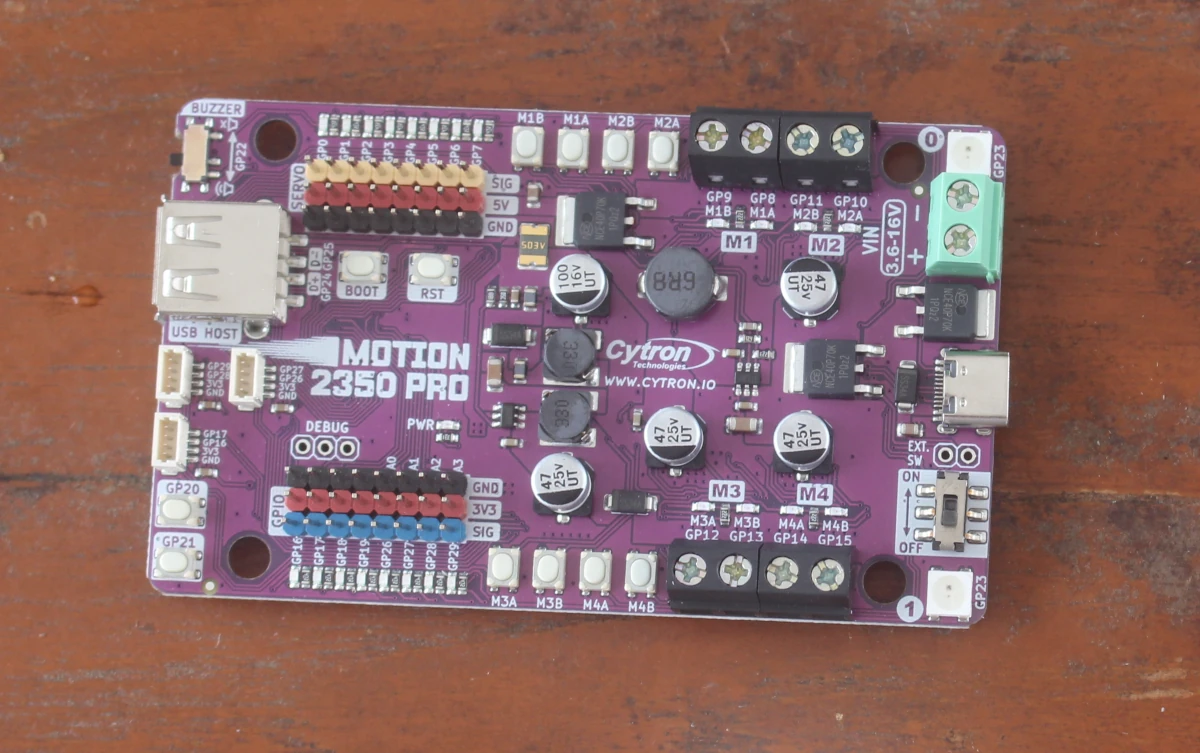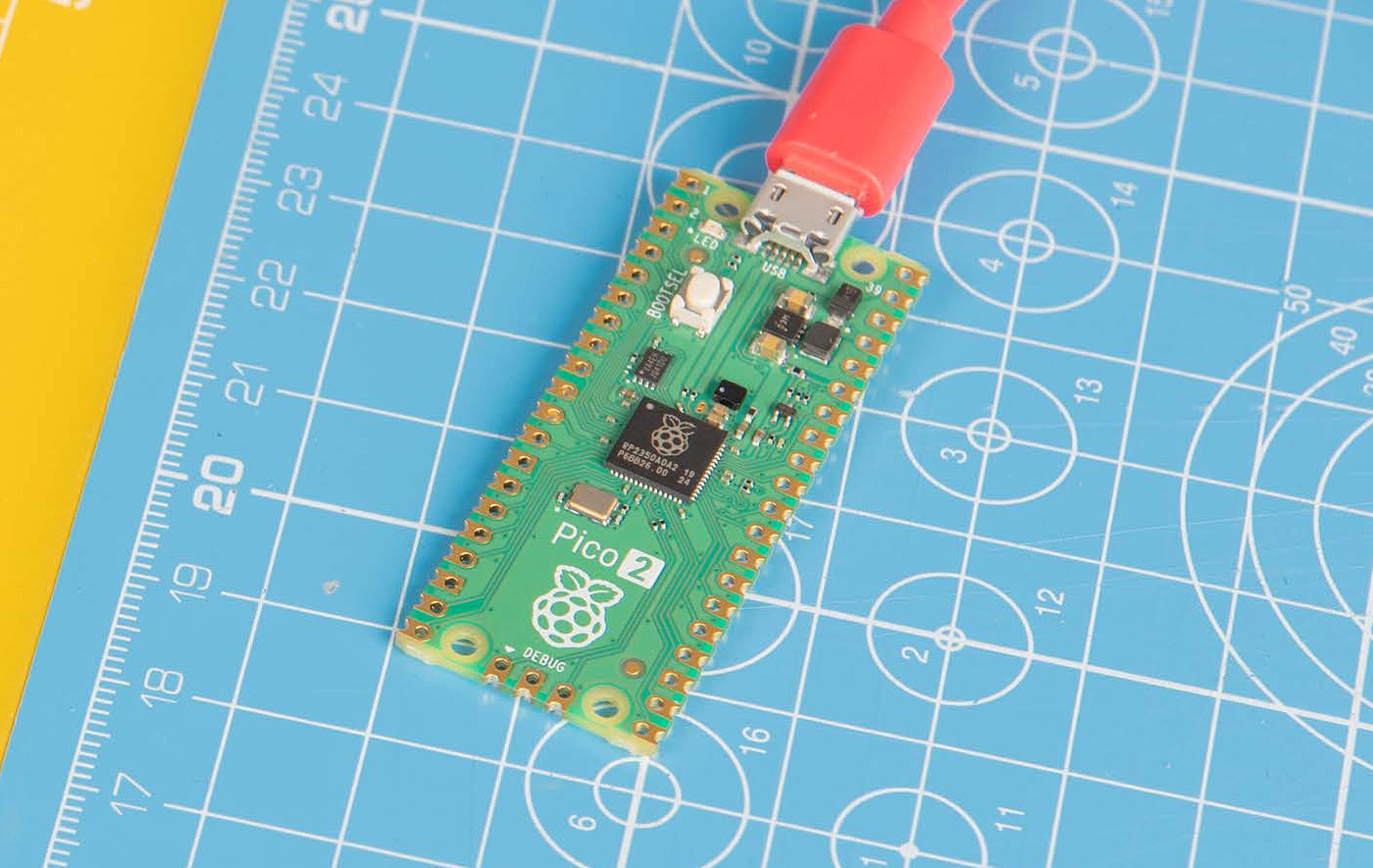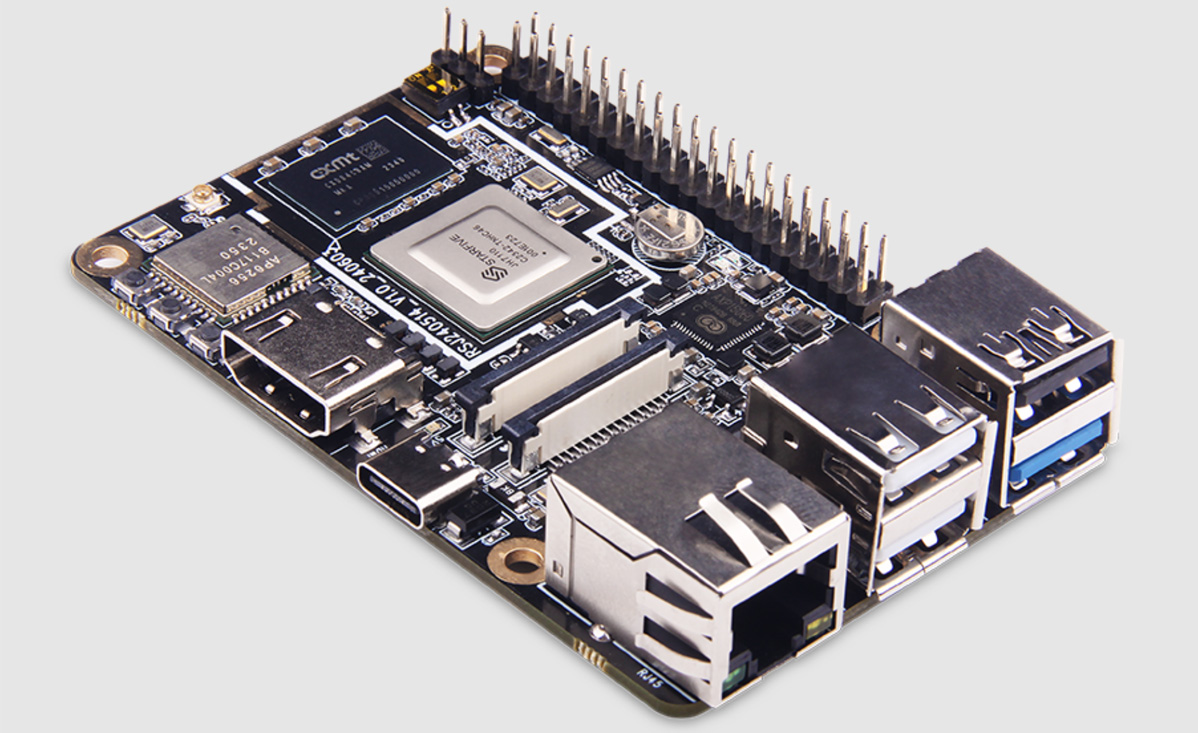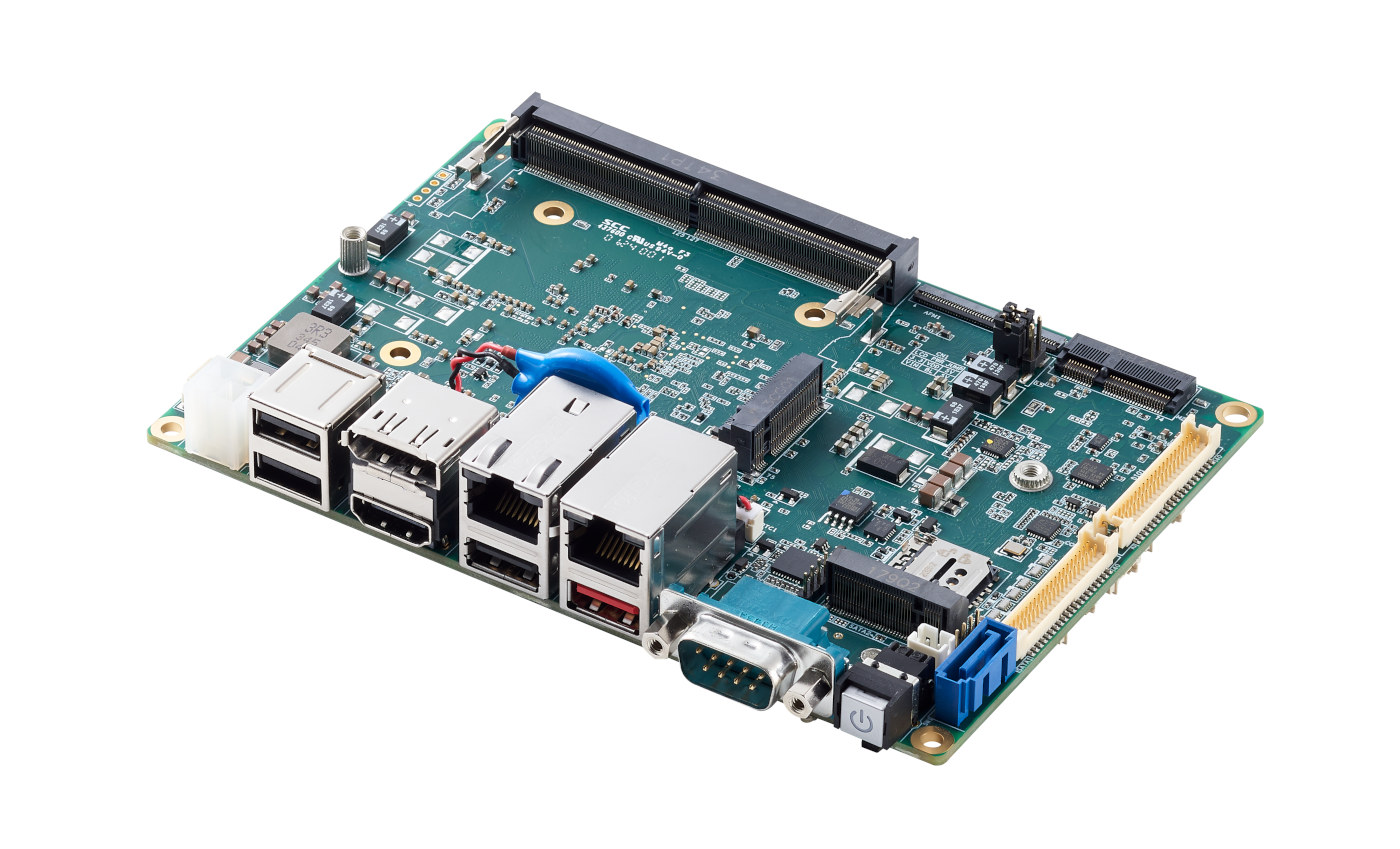The Vecow TGS-1000 Series is an ultra-compact, fanless, stackable embedded computer that includes the TGS-1000 and TGS-1500 models, powered by the latest Intel Core Ultra Metero Lake processors with integrated CPU, GPU, and NPU. It supports up to 96GB DDR5 memory and stackable expansion options for networking, serial, wireless, and more. This series is optimized for edge AI applications, offering up to 14% increased CPU productivity and enhanced graphics capabilities. The TGS-1000 Series offers up to five independent displays through two HDMI and three DP ports. It features a variety of I/O connections, including up to 5 USB 3.0 ports (4x Type-A and 1x Type-C) and one 2.5GbE LAN supporting TSN, making it ideal for vision and automation applications. Its modular design allows flexible expansion for USB, isolated DIO, COM, LAN, or 4G/LTE, suitable for AI, smart retail, office communication, and gaming. The TG-1500 series adds support for MXM graphics […]
DFI RPP051 Pico-ITX SBC features 13th Gen Intel Core embedded SoC from Processor U300E to Intel Core i7-1365UE
DFI RPP051 is a 2.5-inch Pico-ITX SBC built around 13th Gen Intel Core processors ranging from the dual-core Intel Processor U300E to the 10-core Intel Core i7-1365UE. It supports up to 32GB DDR5 SO-DIMM memory and accommodates M.2 NVMe and SATA storage devices. Connectivity options include a 2.5GbE LAN port, DP++ and eDP display interfaces, USB 3.2 Gen 2 and USB 2.0 ports, RS-232/422/485 interfaces, along with I2C and GPIO for expansion. The DFI RPP051 first came to our attention while covering the AAEON PICO-RAP4 which is also an SBC with a Pico-ITX form factor, we have also written about many x86 and Arm Pico-ITX boards including AAEON PICO-MTU4, the AAEON RICO-3568, the GIGAIPC PICO-N97A and many other feel free to check them out if you are looking for compact and powerful SBCs. DFI RPP051 Pico-ITX SBC Specification 13th gen Raptor Lake SoC (one or the other) Intel Core i7-1365UE 10C/12T […]
XIAO RP2350 is a tiny USB-C board based on Raspberry Pi RP2350 MCU
The XIAO RP2350 is an upgrade to Seeed Studio’s XIAO RP2040 board with a more powerful Raspberry Pi RP2350 dual-core Cortex-M33 or dual-core RISC-V microcontroller found in the just-launched Raspberry Pi Pico 2 board. The new Raspberry Pi RP2350 USB-C board has the same form factor but adds eight more GPIOs on the bottom with pads for a total of 19 GPIOs, and we lose two LEDs for serial port connectivity. Most people will still be fine with the XIAO RP2040, but if you need a more powerful microcontroller, extra memory, a few extra GPIOs, and built-in security, then the XIAO RP2350 will be an improvement. XIAO RP2350 specifications: Microcontroller – Raspberry Pi RP2350 MCU CPU – Dual-core Arm Cortex-M33 processor @ 150MHz (Note: again RISC-V is not mentioned at all by Seeed Studio, like for the Cytron MOTION 2350 Pro board) Memory – 520KB internal RAM 8KB OTP Storage […]
Cytron MOTION 2350 Pro – A Raspberry Pi RP2350 board for robotics and motor control
As mentioned in the Raspberry Pi Pico 2 article, third-party RP2350 boards are already available, and one of them is the MOTION 2350 Pro board from Cytron designed for robotics and motor control. The board features a DC motor driver capable of controlling up to 4 brushed DC motors with voltage ratings from 3.6V to 16V. It also features eight 5V servo ports, eight GPIO ports, and three Maker ports for sensor or actuator modules. Each I/O is matched with its own LED which makes the board ideal for the education market and also simplifies debugging. Finally, a USB 1.1 host port is present to connect peripherals such as the RF dongle for a joystick or a keyboard. Cytron MOTION 2350 Pro specifications: Microcontroller – Raspberry Pi RP2350 CPU – Dual-core Arm Cortex-M33 processor @ 150MHz (RISC-V cores are not mentioned, so they are likely not used at all) Memory […]
$5 Raspberry Pi Pico 2 launched with Raspberry Pi RP2350 dual-core RISC-V or Arm Cortex-M33 microcontroller
The Raspberry Pi Pico 2 is an MCU development board based on the new Raspberry Pi RP2350 dual-core RISC-V or dual-core Cortex-M33 microcontroller with 520 KB on-chip SRAM, a 4MB flash, a micro USB port for power and programming and the same GPIO headers as the Raspberry Pi Pico board with an RP2040 dual-core Cortex-M0+ microcontroller with 264KB SRAM. The RP2350 embeds both an open-source Hazard3 RISC-V dual-core CPU and a dual-core Cortex-M33, but only one cluster can be used at a given time. Apart from the faster MCU cores and higher SRAM capacity, the RP2350 is about the same as the RP2040, albeit it also adds one extra PIO block bringing the total to three. One important new feature is built-in security when using Arm Cortex-M33 cores with Trustzone and other security features. Raspberry Pi RP2350 microcontroller Let’s have a closer look at the RP2350 microcontroller, before checking out […]
Geniatech XPI-7110 – A Raspberry Pi-sized RISC-V SBC based on StarFive JH7110 processor
Geniatech XPI-7110 is a RISC-V single-board computer (SBC) built on StarFive JH7110 with a form factor similar to that of a Raspberry Pi 3 and equipped with up to 8GB of RAM, 256GB of eMMC storage. It comes with various I/O options including USB ports, HDMI 2.0, GbE Ethernet, Wi-Fi/BT, GPIO, camera, display, and much more. The company also mentions that the board will be available in both commercial and industrial variants and will include a 10+ year lifecycle The new Geniatech board is very similar to the Milk-V Mars that we wrote about a few months ago. Additionally, we have written about PineTab-V, Pine64 Star64 SBC, and Milk-V Meles SBC all of which are built around the StarFive JH7110 or T-Head TH1520 RISC-V SoC, feel free to check those out if you are interested in the topic. Geniatech XPI-7110 SBC specifications: SoC – StarFive JH7110 CPU – Quad-core RISC-V processor […]
MechDog AI Robot Dog features ESP32-S3 controller, supports Scratch, Python, and Arduino programming
Hiwonder’s MechDog is a compact AI robot dog powered by an ESP32-S3 controller that drives eight high-speed coreless servos. It features built-in inverse kinematics for precise and agile movements and has ports for various I2C sensors such as ultrasonic and IMU sensors. The robot is equipped with a durable aluminum alloy frame and a removable 7.4V 1,500mAh lithium battery for power. MechDog integrates with the ESP32-S3 AI vision module, supporting dual-mode network communication either AP Hotspot Direct Connection Mode or STA LAN Mode so that users can access a designated URL webpage via an app or PC for real-time monitoring using a high-definition camera. Also, this robot dog supports various sensor modules, including a touch sensor, light sensor, dot matrix display, and programmable MP3 module, allowing for secondary development and expansion, offering extensive creative possibilities. Previously, we wrote about the Waveshare UGV AI Rover, which features a 2mm thick aluminum […]
ADLINK SBC35-ALN 3.5-inch Intel N97 SBC features SBC-FM expansion connector with PCIe, USB, SMBus
ADLINK SBC35-ALN is a 3.5-inch Intel N97 SBC with up to 16GB DDR5, an M.2 socket for M.2 storage, and a custom SBC-FM expansion connector with PCIe Gen3 x1, USB 2.0, and SMBus interfaces. The 3.5-inch board also features two gigabit Ethernet ports, three display interfaces with HDMI, DisplayPort, and LVDS or eDP, several USB ports and RS232/RS422/RS485 serial interfaces, 40-pin box headers, and M.2 E-Key and B-Key sockets for wireless expansion. ADLINK SBC35-ALN specifications: SoC – Intel Processor N97 quad-core Alder Lake-N processor @ up to 3.6 GHz with 6MB Cache, Intel UHD Graphics; 12W TDP System Memory – Up to 16GB DDR5 4800 MHz via SODIMM slot Storage 1x SATA III + SATA power connector 256 Mbit SPI flash for BIOS Display 1x DisplayPort 1.4 1x HDMI 2.0 through DP to HDMI Redriver LVDS/eDP (default: LVDS) Supports 3 independent displays Audio Realtek ALC888S audio codec 1x Line-in, 1x […]


